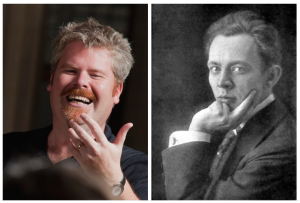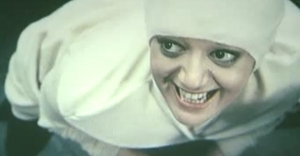Podcast: Play in new window | Download (Duration: 1:52:51 — 105.6MB) | Embed
Subscribe: Spotify | TuneIn | RSS | More
This month’s series of Listeners’ Favorites continues with the baritone Heinrich Rehkemper (1894-1949), presented to you today by my dear friend, the esteemed conductor Gavin Carr, who is the very person that first introduced him to me many years ago now. Rehkemper is one of a number of exceptional German baritones of that era who represent a very different kind of singing than we are accustomed to today: full-throated voices with an even scale from top to bottom managed with no technical gimmickry or phoniness. Rehkemper brought these traits to whatever music he was singing, whether opera, oratorio, or Lied. He left a small but important cache of discs, including many Lieder recordings, particularly of Franz Schubert. He also made the first complete recording in 1928 of Gustav Mahler’s Kindertotenlieder under the baton of none other than the great Mahler conductor Jascha Horenstein. I place Rehkemper in the context of the other significant German baritones of his era, Heinrich Schlusnus, Willi Domgraf-Fassbaender, Karl Schmitt-Walter, and Gerhard Hüsch, playing examples of each singing the aria of Di Luna from Verdi’s Der Troubadour, each sung in German translation. But it is first and foremost the unique legacy of Rehkemper’s art song recordings that concerns me here, and I discuss what makes his work so important, and what today’s singers can learn through close study of his recordings. My dear friends, just because the name of today’s baritone might not be familiar to you, Gavin and I both implore you not to hesitate in partaking of the vocal and musical riches to be discovered in this episode!
Countermelody is a podcast devoted to the glory and the power of the human voice raised in song. Singer and vocal aficionado Daniel Gundlach explores great singers of the past and present focusing in particular on those who are less well-remembered today than they should be. Daniel’s lifetime in music as a professional countertenor, pianist, vocal coach, voice teacher, and journalist yields an exciting array of anecdotes, impressions, and “inside stories.” At Countermelody’s core is the celebration of great singers of all stripes, their instruments, and the connection they make to the words they sing. By clicking on the following link (https://linktr.ee/CountermelodyPodcast) you can find the dedicated Countermelody website which contains additional content including artist photos and episode setlists. The link will also take you to Countermelody’s Patreon page, where you can pledge your monthly support at whatever level you can afford.


